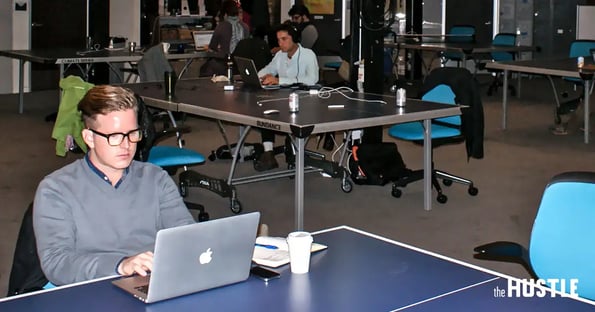These days everyone in tech seems to be working for a startup — whether it’s young and scrappy or a “unicorn” that’s experienced exponential growth.

But when does a startup become a regular company? And what sets the two apart?
The line isn’t well-defined, so we decided to think about what makes a startup in the first place.
“Designed to grow fast”
Y Combinator Co-founder Paul Graham defined a startup like this:
“A startup is a company designed to grow fast. Being newly founded does not, in itself, make a company a startup. Nor is it necessary for a startup to work on technology, or take venture funding, or have some sort of ‘exit.’ The only essential thing is growth. Everything else we associate with startups follows from growth.”
Growing fast is critical to success, he said.
“Startups are so hard … (but) if you get growth, everything else tends to fall into place. Which means you can use growth like a compass to make almost every decision you face.”
Searching for the right fit
Adam D’Augelli from True Ventures told Business Insider that he views a startup as a company that’s looking for the right market fit, and hasn’t begun to scale or develop its own inner structure or bureaucracy.
“Until that happens, a company is exceptionally nimble – a small engineering team – hacking away trying to solve a problem,” said D’Augelli.
“Tactically, a startup usually looks like a team of less than 50 and pre-Series C. But there will be a ton of exceptions to this rule,” he added.
The line is blurry
But even the best definitions of what makes a startup are usually too broad, reporter Alex Willhelm of TechCrunch said.
As a solution, he came up with the “50, 100, 500 Rule.” Let me explain.
According to him, a startup is anything under these thresholds:
- $50 million in revenue run rate (forward 12 months)
- 100 or more employees
- Worth more than $500 million, on paper or otherwise
Anything over these stats is a full-fledged company.
And when all else fails, go and see, feel it out
If you’re dreaming of working at a startup but aren’t sure what to look for (besides a company’s claim that it is one), look for a company with people who are hungry.
Look for people who love what they’re doing. The company might be fully funded with a swanky, exposed-brick office downtown, or it might be a bunch of card tables and a power strip in the middle a badly lit shared office. What really sets startups apart from big companies is their lack of pretense, structure, and guarantees.
Everyone is more connected to the work, to the success and failure of the company than they are at a normal company. And because of that, they make their own rules. People live in the moment because they’ve stepped out of the box, imagined something new and made it real. That’s a startup.
If you don’t feel that frenetic pulse of people striving like their lives depend on it, it’s just a company.
